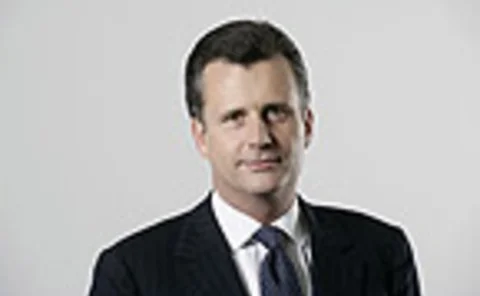Transparency
Williams welcomes greater transparency at the Fed
San Francisco Federal Reserve president John Williams says he supports steps to make the Fed’s long-term policy goals more explicit
SNB’s Hildebrand identifies risks to central bank independence
Swiss National Bank chairman Philipp Hildebrand says central bank independence is crucial, but has its pitfalls
Interest rate less volatile with more transparency: NY Fed paper
New York Federal Reserve study says greater central bank transparency reduces interest rate volatility
Lawmakers say competition in UK retail banking “non-existent”
Report by parliamentarians says pre-conditions for effective competition in retail banking market "not present”; calls for test for proposed future divestments of government-held stakes in banks
Bank of Mexico to publish minutes of rate-setting meetings
Release of monetary policy minutes will boost transparency says central bank; rate-setters’ votes not to be disclosed, however
IMF: commodity shocks explain variation in Latin American fiscal positions
IMF study finds impact of commodity price volatility on government revenue in Latin America linked to fiscal standing
Natural gas discovery sparks debate in Lebanon over SWF
Potential discovery of natural gas off the shore of northern Israeli coast sparks debate among Lebanese government officials over whether to create a new sovereign wealth fund
ECB insists stress tests are credible
ECB denies claims stress test scenarios were not severe enough
EU’s Barnier: paradigm shift in regulating OTC derivatives
European Commission commissioner for internal market and services Michel Barnier says concept of light touch regulation is history
RBI's Gopinath says regulation key in OTC reforms
Reserve Bank of India deputy governor Shyamala Gopinath discusses challenging process of calibrating India's over-the-counter derivatives markets
Trichet: Reforms must keep an eye on financial markets
ECB president Jean-Claude Trichet outlines four main areas of reform in the financial sector where there is further room for improvements
EXCLUSIVE: Ghana’s Amissah-Arthur defends inflation targeting
Bank of Ghana governor Kwesi Bekoe Amissah-Arthur says framework is broader than its critics argue; points to problems in Ghanaian banking sector
Norges Bank takes reputation poll
Norwegian central bank publishes outcome of its first ever reputation survey; poll finds central bank is doing well in public eyes, but could be more open
PBoC to regulate non-bank payments providers
People’s Bank of China sets out new legislation governing non-financial institutions that provide payments services; law an attempt to shed light on burgeoning payments network
Draghi backs EU move on stress tests
Bank of Italy governor Mario Draghi sees publication of results of stress tests of Europe’s biggest banks as key to calming market jitters; EU move follows Spanish decision to publish results of its stress tests earlier this week
Fed could win fight on monetary policy audit: reports
Media reports saw lawmakers in Congress's lower house could relent on forcing monetary policy decisions to be audited, as lawmakers work to forge swift agreement
Argentina tightens rules on dollar purchases
Argentine central bank toughens regulation for large dollar buyers; says move not intended to limit access to market
Brussels calls for European ratings supervisor
European Commission proposes new body to oversee all credit ratings agencies operating in the European Union; security issuers must provide information to all agencies to boost competition
Angolan central bank loses monetary policy mandate
Parliament votes to change law so central bank can “merely participate” in monetary and exchange rate policy; government will have responsibility while central bank assists in implementation
Berlin hastily bans naked CDS, short-selling
Supervisor places temporary ban on naked credit default swaps, eurozone bond short sales, citing market volatility; analysts say uncoordinated move is further sign of fragmentation within eurozone
Bank reports on impact of quantitative easing
Bank of England asset purchase report shows bank held gilts purchase steady in early 2010 despite marginal sale in corporate bonds
Israel welcomes new law, no sign of rate-setters yet
Bank of Israel law creating a six-member Monetary Committee officially passed and governor Stanley Fischer thanks those who contributed, government has not yet begun search for external members
RBI marks 75th anniversary with new goals
Governor Subbarao outlines new path for 2010
Fed’s independence in public’s interest: Bernanke
Ben Bernake says the Federal Reserve will work with Congress to ensure maximum transparency






















